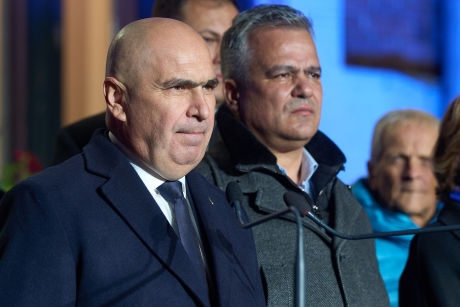Ilie Bolojan, interim chairperson of the National Liberal Party (PNL), has raised concerns about the delicate state of the country’s budgetary balance. In a recent statement reported by Agerpres, Bolojan warned that without significant reductions in state operating expenses and the elimination of wastefulness, the government may have no choice but to increase taxes in the near future.
The implications of Bolojan’s comments are far-reaching, as they shed light on the precarious financial situation facing the country. With the budgetary balance hanging in the balance, the need for urgent action to curb unnecessary spending and streamline operations becomes increasingly apparent. Bolojan’s stark warning serves as a wake-up call to policymakers and citizens alike, urging them to take proactive measures to safeguard the country’s economic stability.
As the leader of the PNL, Bolojan’s words carry weight and significance, reflecting the party’s stance on fiscal responsibility and prudent financial management. By highlighting the risks associated with unchecked state expenses, he underscores the importance of sound budgetary practices in ensuring long-term prosperity and sustainability.
The prospect of tax increases looms large if corrective action is not taken promptly. Bolojan’s assertion that higher taxes may become inevitable underscores the urgency of the situation and the need for decisive measures to avert a potential fiscal crisis. The implications for businesses, individuals, and the overall economy are significant, as higher taxes could dampen economic growth, reduce consumer spending, and hinder investment.
Bolojan’s call for reducing wastefulness in government spending is a timely reminder of the need for efficiency, transparency, and accountability in public finances. By identifying areas where savings can be made and resources better allocated, he points towards a more sustainable and responsible approach to budget management. His emphasis on eliminating waste underscores the importance of ensuring that taxpayer funds are used wisely and effectively to benefit the public good.
In conclusion, Ilie Bolojan’s warning about the delicate state of the country’s budgetary balance serves as a sobering reminder of the challenges facing the economy. By sounding the alarm on the need for fiscal prudence and efficiency, he highlights the importance of responsible governance and sustainable budget practices. His call for action to rein in expenses and prevent tax increases underscores the urgency of the situation and the imperative of addressing financial vulnerabilities before they escalate. As policymakers grapple with these issues, Bolojan’s message resonates as a clarion call for greater fiscal discipline and foresight in securing the country’s financial future.


